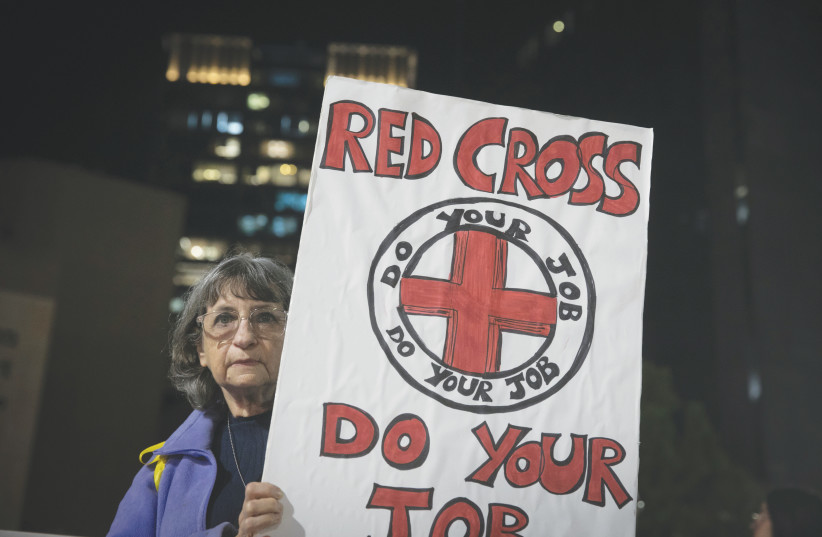A Maariv investigation has revealed a wave of severe illnesses in the Gaza Strip caused by widespread bacterial infections, viral parasites, and fungi. Some of the pathogens can lead to serious diseases that do not manifest symptoms until the late stages of the illness, reflecting immediate life-threatening danger.
Following the examination of the first captives released from Hamas captivity, a picture of the severe infections manifesting in the hostages has emerged. Some of them suffered from intestinal inflammations caused by salmonella and shigella bacteria, leading not only to the risk of dehydration due to diarrhea and vomiting but, in severe cases, also to blood or brain infections.
Without proper hygiene, which is non-existent in captivity conditions, bacteria spread rapidly and lead to widespread infection and diseases, endangering the lives of patients, especially those suffering from underlying diseases.
Data from the international company for infectious diseases that reached Maariv indicate an outbreak of another epidemic - hepatitis A, a viral disease of the liver. The hepatitis A virus is transmitted through contaminated food or water, as well as through anal sexual relations. The virus causes flu-like symptoms including weakness, fatigue, fever, nausea, vomiting and stomach pain, with jaundice appearing within two weeks. The disease can rapidly progress to liver damage and life-threatening conditions.

The winter season hits hard in the Gaza Strip with reports of outbreaks of pneumonia caused by pneumococcus bacteria, widespread flu illness, and coronavirus infection. The Palestinian Ministry of Health is almost non-functional, so unlike Israel, there is no accurate numerical data on the extent of the illness. However, according to reports published in the Arab media, hospitals in Gaza were under very heavy pressure due to the noticeable illness.
Respiratory infectious diseases spread easily through coughing and sneezing. Overcrowded conditions in prisons and lack of ventilation increase the risk of infection with pneumonia, which can be deadly. According to estimates, the vaccination rate among Palestinians in the Gaza Strip is very low, including for influenza and coronavirus, which further increases the risk of infection.
<br>Risk from fungal infections
Another worrying illness related to fungal infections has caused the death of a soldier: it is a fungus called Fusarium that infected a fighter hospitalized at the Sheba Medical Center. Found mostly in contaminated soil, on plants, and in water, this fungus is considered highly resilient even in extreme weather conditions and resistant to most treatments. The fungus causes skin and eye infections, but it can also lead to widespread infection in the abdominal space, sinusitis, lung inflammations, and infections in the joints, bones and blood.
Some of the returned captives came back not only in poor nutritional condition when they were not treated for their underlying disease but they were also suffering from skin infections, rashes, scabies, and lice infestations.
"We know, both from examinations of the returning captives and from international medical sources, that there is a very broad infectious disease level in Gaza," says Prof. Hagai Levin, head of the medical system of the Hostages Forum and a public health specialist.
"Together with the difficult conditions of captivity and the poor hygiene, any simple infection can become complicated and lead to life-threatening infections," he said. "Unfortunately, we have already seen evidence that the captives do not receive the medication that was sent to them, let alone medical examinations.
"The images from the IDF in the areas where they were stationed indicate a very severe health situation which in itself is dangerous – and alongside the infections, there is a very severe concern for [the hostages'] condition," Levin said.
"We say again and again that every passing moment in captivity endangers the lives of the captives," he warned. "Only their immediate release will ensure their lives."
